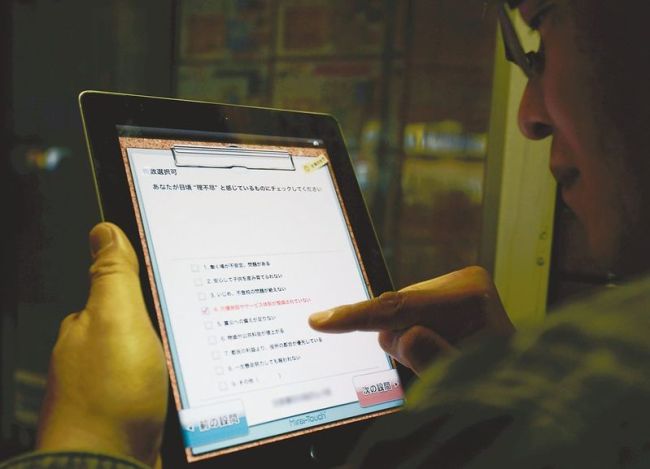Next month’s Tokyo Metropolitan Assembly election has become a virtual run-up for online election campaigning, which will become legal from this summer’s House of Councillors election.
The official campaign period for the Tokyo election will kick off June 14, with voting scheduled for June 23.
The upper house election will come on the heels of the metropolitan assembly poll, and candidates will be allowed to use Twitter, Facebook and other social networking sites (SNS) for the first time in their campaigns.
However, the Democratic Party of Japan, many of whose members are serving their first or second terms in office and do not have a firm electoral base, are looking for ways to expand their support bases through the Internet without breaking the law. The so-called third-force parties that will fight their first election campaign with the Tokyo race are looking to do the same. As such, observers expect some cases to cross into a gray area, potentially stirring up controversy.
On May 10, Your Party held a training session for candidates scheduled to run in the Tokyo election about how to utilize social networking sites.
The official campaign period for the Tokyo election will kick off June 14, with voting scheduled for June 23.
The upper house election will come on the heels of the metropolitan assembly poll, and candidates will be allowed to use Twitter, Facebook and other social networking sites (SNS) for the first time in their campaigns.
However, the Democratic Party of Japan, many of whose members are serving their first or second terms in office and do not have a firm electoral base, are looking for ways to expand their support bases through the Internet without breaking the law. The so-called third-force parties that will fight their first election campaign with the Tokyo race are looking to do the same. As such, observers expect some cases to cross into a gray area, potentially stirring up controversy.
On May 10, Your Party held a training session for candidates scheduled to run in the Tokyo election about how to utilize social networking sites.

The attendees were told, “We want you to try to obtain at least 1,000 followers on Twitter or 500 friends on Facebook.”
During the session, Kota Matsuda, chief of Your Party’s Public Relations Committee, encouraged attendees by saying, “If you use SNS skillfully, even a small group like us can effectively compete with larger forces.”
As of Tuesday, Your Party planned to field 22 candidates in the Tokyo election and aimed to team up with Nippon Ishin no Kai (Japan Restoration Party) to gain a majority in the Tokyo assembly.
However, many Your Party candidates do not have strong electoral bases or influential people among their relatives. Therefore, the party is trying to utilize SNS to recruit new supporters.
One of the prospective candidates already has more than 10,000 Twitter followers.
Ishin no Kai coleader and Osaka Mayor Toru Hashimoto is particularly well known for his keen use of Twitter.
Among the party’s 35 prospective candidates, as of Tuesday, 21 were using Twitter. Eleven had their own accounts on both Twitter and Facebook as well as personal websites.
Though the Tokyo election will be held before the official liberalization of online campaigning, a senior Ishin no Kai member said, “If it doesn’t break the law, there’s no reason we can’t use “such websites).”
Thus the party has encouraged the active use of the Internet before the start of official election campaigns.
The DPJ’s Tokyo chapter has decided to provide iPads to its prospective candidates, who totaled 45 as of Tuesday.
It did so to encourage candidates to gather voters’ opinions.
For example, when candidates deliver street speeches, they will show their iPads to voters and ask, “Please tick the issues that concern you most.”
Survey results will be announced on the party’s website and used in policymaking.
The secretariat of the DPJ’s Tokyo chapter said this method “makes it easier to tally results than with paper surveys.”
However, one observer said the party has an ulterior motive for using the devices ― to show how it is actively using information technology.
The DPJ also plans to introduce an electronic aspect to its election posters. When smartphone users open a special application and place their phones over the posters, video clips of candidates speaking about policies and election pledges will be shown onscreen. The party said it will actively pursue the method as it is not strictly prohibited by the Public Offices Election Law.
Some candidate hopefuls have vowed to use the Internet throughout their campaigns for the Tokyo election.
An incumbent DPJ member in the Tokyo Metropolitan Assembly has been distributing video clips online every week and plans to post clips related to street speeches and daily activities online during the election campaign period.
The current law prohibits such actions during election campaigning, as such clips could constitute distribution of materials to an unspecified number of people.
Thus far, many candidates have voluntarily refrained from such actions during election campaign periods.
The DPJ member insists the information will be distributed only to voters who have registered online. “The registered users are similar to members of my supporter organization, just on the Internet. So this does not constitute an unspecified number of people,” the member said.
An official of the secretariat of the Tokyo Metropolitan Election Administration Commission said, “If anyone can register as a user, there is a potential for (distribution to) an unspecified number of people. “Even if information targets a specific number of people, asking for votes constitutes an election campaign action, and if this is done online, it would fall outside the allowed activities for this metropolitan assembly election.”
The election administration commission said it will warn candidates about such issues.
(The Japan News)
-
Articles by Korea Herald




![[Herald Interview] 'Amid aging population, Korea to invite more young professionals from overseas'](http://res.heraldm.com/phpwas/restmb_idxmake.php?idx=644&simg=/content/image/2024/04/24/20240424050844_0.jpg&u=20240424200058)












![[KH Explains] Korean shipbuilding stocks rally: Real growth or bubble?](http://res.heraldm.com/phpwas/restmb_idxmake.php?idx=652&simg=/content/image/2024/04/25/20240425050656_0.jpg&u=)

